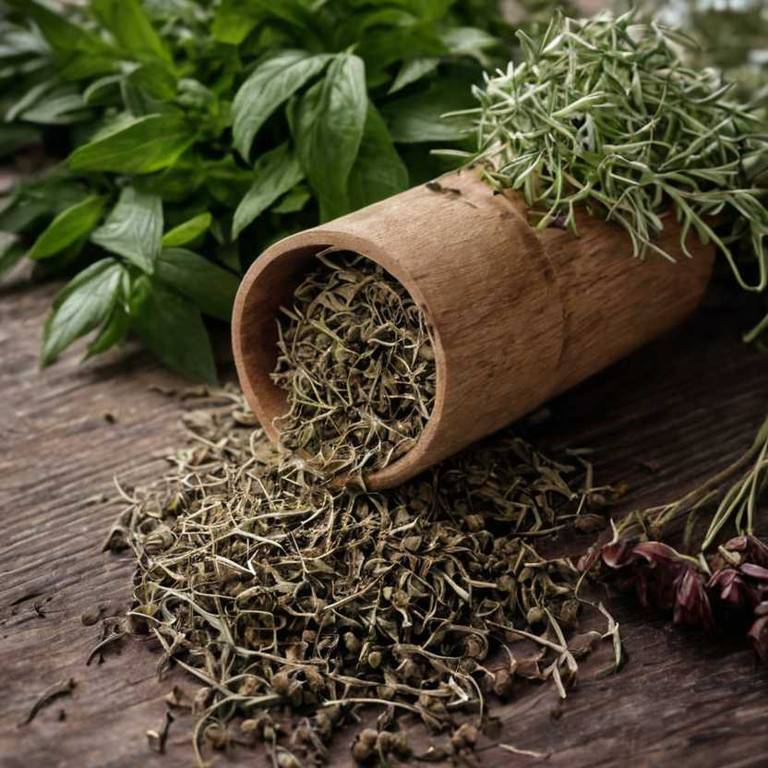By Leen Randell
Updated: Jul 07, 2024
What Are The Medicinal Properties Of Cornus Officinalis (Chinese Dogwood)?

Cornus officinalis, also known as Chinese dogwood, has health benefits such as lowering cholesterol and blood pressure due to its antioxidant and anti-inflammatory properties.
Its medicinal constituents include flavonoids, phenolic acids, and terpenoids, which contribute to its therapeutic effects. The herb is often prepared into teas, capsules, and extracts for medicinal use. Possible side effects may include allergic reactions and gastrointestinal issues.
Precautions include consulting with a healthcare professional before using the herb, especially for pregnant or breastfeeding individuals.
This article explains the health benefits, active constituents, medicinal preparations, possible side effects, and precautions related to Cornus officinalis.
- What are the health benefits of Cornus officinalis?
- What are the active constituents of Cornus officinalis?
- What are the medicinal preparations of Cornus officinalis?
- What are the possible side effect of using Cornus officinalis improperly?
- What precautions to take when using Cornus officinalis medicinally?
What are the health benefits of Cornus officinalis?
Cornus officinalis, also known as Chinese dogwood, has health benefits such as antioxidant and anti-inflammatory properties, which can help protect against cell damage and reduce inflammation in the body.
It may also help to lower cholesterol levels and improve cardiovascular health, as well as exhibiting antimicrobial and antiviral activity.
Additionally, its flavonoid compounds are believed to have anti-aging and neuroprotective effects.
Here's a detailed article about the 10 health benefits of Cornus officinalis.
What are the active constituents of Cornus officinalis?
Cornus officinalis, also known as Chinese dogwood, has active constituents such as flavonoids, alkaloids, and iridoids, which are responsible for its medicinal properties.
The flavonoids, including quercetin and kaempferol, exhibit anti-inflammatory and antioxidant effects, while the alkaloids, including berberine, have antimicrobial and anti-diabetic properties.
The iridoids, including cornuside, have been shown to have cardiotonic and anti-hypertensive effects, contributing to the plant's traditional use in treating various conditions, including cardiovascular disease and diabetes.
Here's a detailed article about the 10 active constituents of Cornus officinalis.
What are the medicinal preparations of Cornus officinalis?
Cornus officinalis, also known as Chinese dogwood, has medicinal preparations such as decoctions, infusions, and tinctures.
The flowers, leaves, and fruits of the plant are used to make these preparations, which are used to treat various health conditions, including fever, rheumatism, and gastrointestinal disorders.
The berries are particularly valued for their high content of flavonoids and ascorbic acid, which have antioxidant and anti-inflammatory properties.
Here's a detailed article about the 10 medicinal preparations of Cornus officinalis.
What are the possible side effect of using Cornus officinalis improperly?
Improper use of Cornus officinalis, also known as Chinese dogwood, increases the chances of experiencing side effects such as abdominal pain, diarrhea, and nausea.
The plant may also cause dizziness, headache, and skin rashes in some individuals.
Excessive consumption can lead to bleeding disorders due to its potential to interfere with blood clotting, and may interact with certain medications, including anticoagulants and diabetes medications.
Here's a detailed article about the 10 most common side effects of Cornus officinalis.
What precautions to take when using Cornus officinalis medicinally?
Before using Cornus officinalis, also known as Chinese dogwood, for medicinal purposes, you must take precautions such as identifying it correctly to avoid misidentification with similar-looking plants.
Be aware that it can cause gastrointestinal upset, and interact with blood thinners, diabetes medications, and other herbs that lower blood sugar.
Consume it in moderation and consult with a healthcare professional to determine safe dosages and usage.
Here's a detailed article about 10 precautions to take when using Cornus officinalis.